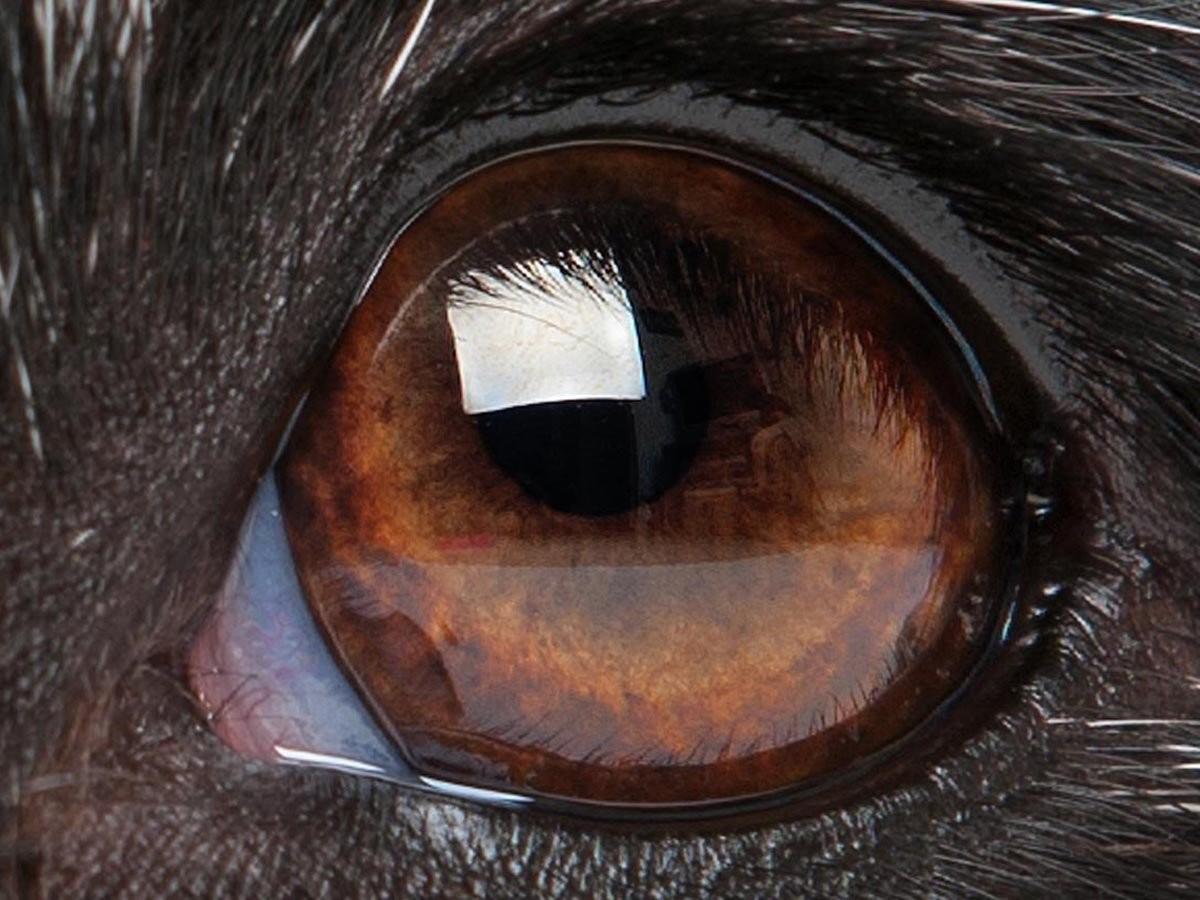There is arguably nothing cuter than a puppy or kitten looking up at you with big eyes.
Our pets’ eyes are windows to their soul, and keeping them healthy is an essential part of caring for our pets. Unfortunately, this can be difficult, especially when our animals choose to stick their nose into things, scratch at their eyes, or have fur that falls into their eye.
In honor of National Service Animal Eye Exam Month, we’re going to break down the top tips you need to know for caring for your pet’s eyes.
Are My Pets’ Eyes Okay?
Like us, our pets can experience allergies, eye infections, and other eye afflictions, like cataracts. As responsible pet parents, it’s vital that we recognize any changes in our pets’ eyes or vision.
Here are a few signs that your pet may be experiencing irritation or other eye issues:
scratching or pawing the eyes
holding one eye partially or completely shut
cloudy irises
sudden dizziness or difficulty walking straight
squinting
hesitance to walk around in the dark (fear of hitting into things if they can’t see as well)
swelling of the eyelids
red eyes
watery eyes
unusual discharge from the eyes
If you notice any of these symptoms, please reach out to your veterinarian immediately. Remember, there are always dog insurance and cat insurance options to help you plan for life’s unexpected pet health care costs.
While it could be something relatively harmless, such as seasonal allergies, other eye conditions like cataracts and infections need immediate treatment. When put off, eye conditions can worsen, or your pet may damage their eye if they are pawing at their eyes to relieve the irritation.
Possible Causes Of Red, Irritated Eyes In Pets
There are many reasons why pets may experience irritated, red eyes. Infections are one possibility, but there are a variety of other reasons that irritation can occur, including:
Infections: There are many reasons why infections occur, including viruses, fungi, bacteria, and more. Vaccines and parasite prevention medication can minimize your pet’s risk of infection. (1)
Eye Irritants: A pet may dig or put their head into something, resulting in a foreign irritant, like dust or sand getting into their eye. This can cause irritation and even a scratched cornea.
Cherry eye: Cherry eye is an eye condition where the third eyelid slips and “pops out,” resulting in a bright pink, “cherry” appearance that covers part of the eye. Cherry eye happens for many reasons but affects certain breeds, such as Boston Terriers, French bulldogs, Shih Tzus, Pugs, Burmese cats, Persian cats, and Beagles, at a much higher rate due to their pronounced eyes. (2)
Eye Trauma: Any kind of direct injury to the eyes, face, or head can cause eye infections or conditions.
Allergies: Many dogs and cats develop seasonal allergies to pollen, resulting in redness, itchiness, and discharge.
Routine Eye Care For Pets
There are many ways that we can help our pets keep their eyes healthy.
Regular cleaning with a washcloth. Take a washcloth or sponge with warm (not hot!) water to gently clean the area around your pets’ eyes. Some pets may develop “tear stains” if the eye area is not regularly cleaned.
Avoid soaps and shampoos. In most cases, soaps and shampoos should not be used to clean your pet’s face and eyes. If water is not sufficient, consult with your veterinarian for advice on safe products to clean the delicate area around your pet’s eyes. (3)
Skip paper towels. Flimsy materials like napkins and paper towels can shred while you clean your pet’s face and get stuck in their fur. Stick with a durable washcloth to avoid leaving behind clumps of paper.
Keep excess hair controlled. If your dog or cat has long hair, keep excess hair around their eyes trimmed to prevent infection or irritation. Seek out a professional groomer or veterinarian to cut the hair around your pet’s eyes.
Regularly examine your pet. In general, regularly examining your pet is a good idea so that you can keep an eye on any new injuries, bumps, irritation, weight gain, etc. As part of this, you should examine your pet’s eyes and look for possible signs of eye irritation and infection.
Keeping your pet’s eyes healthy is an important part of being a responsible pet parent. Even with proper eye care though, your pet can still develop infections and other conditions that could affect their wellbeing and health.
Sign up for a pet insurance policy today so that you can be reimbursed later in their life if they develop an infection, cataract, or other covered health concern. Don’t wait! Sign up today and give yourself peace of mind knowing that your pet is covered should they get sick or have an accident.
Zoetis Petcare
Veterinary Centers of America
Pedigree
